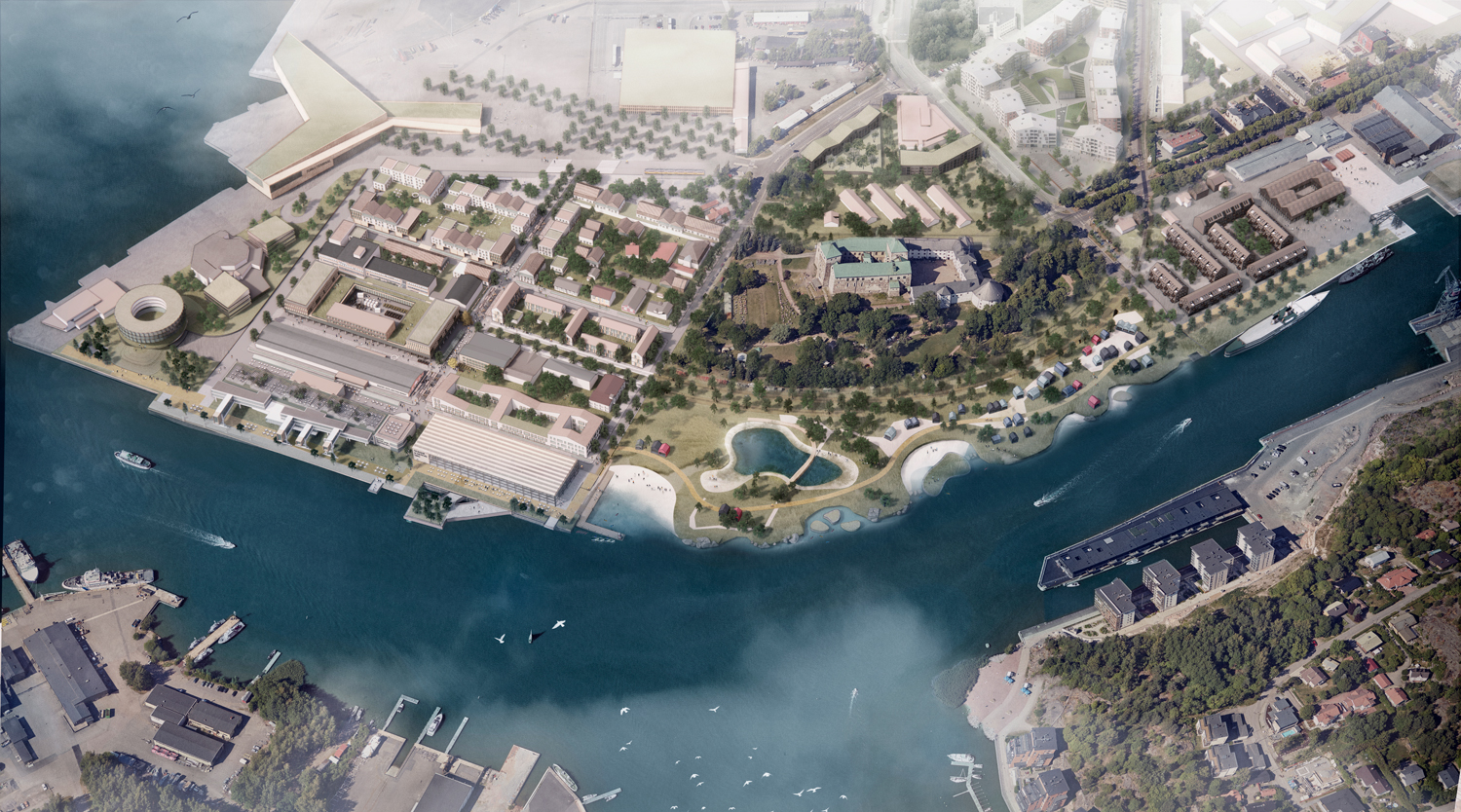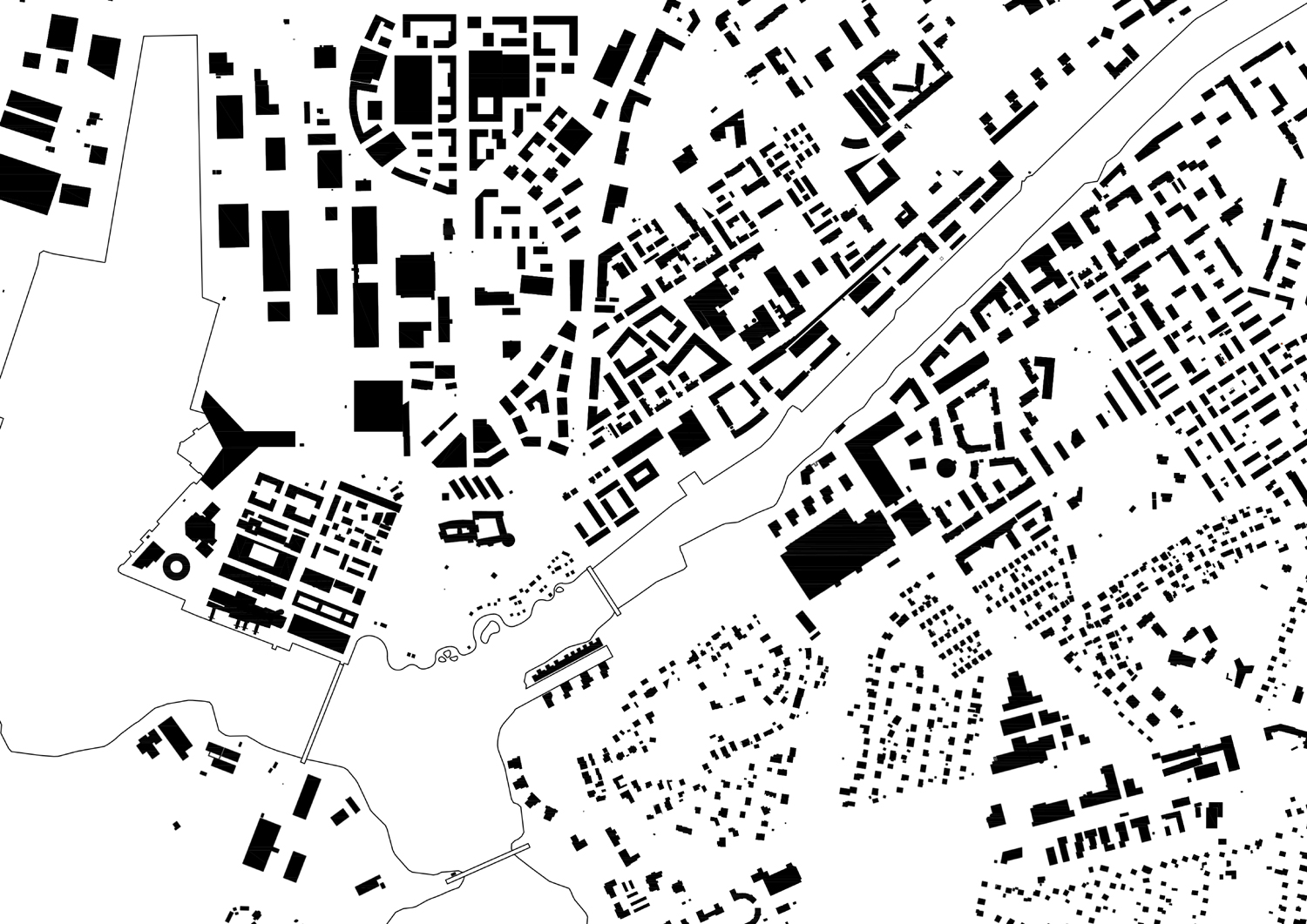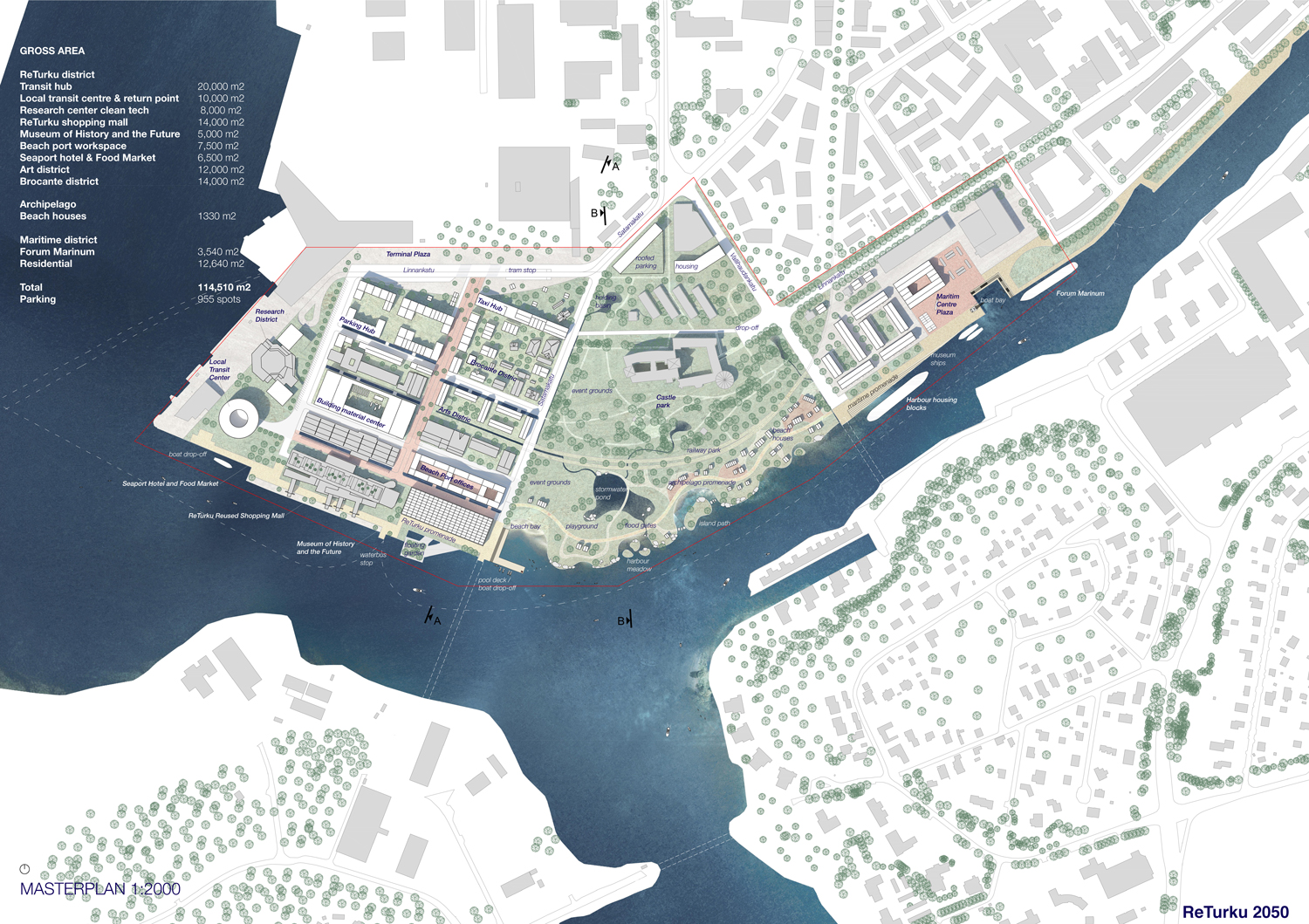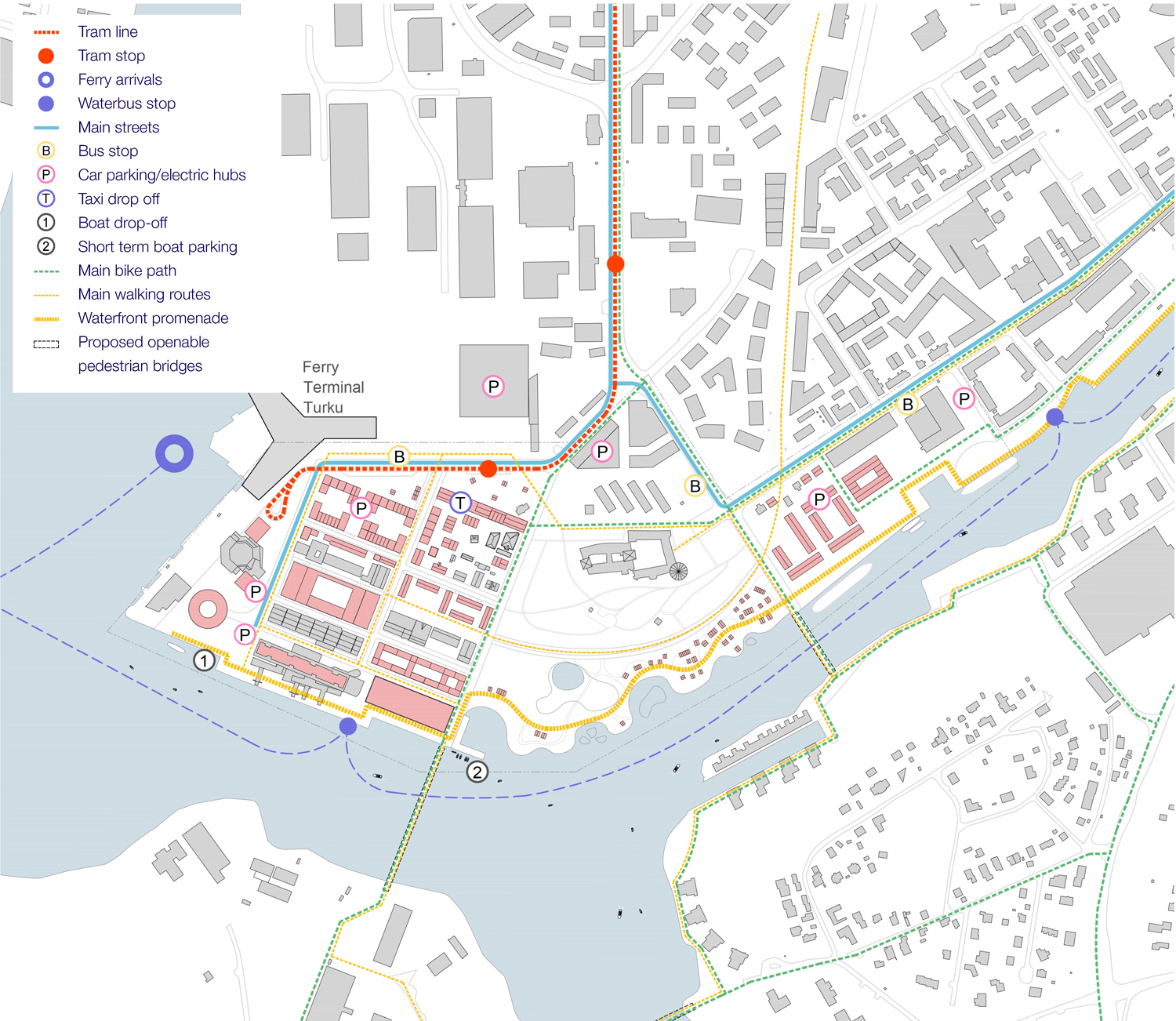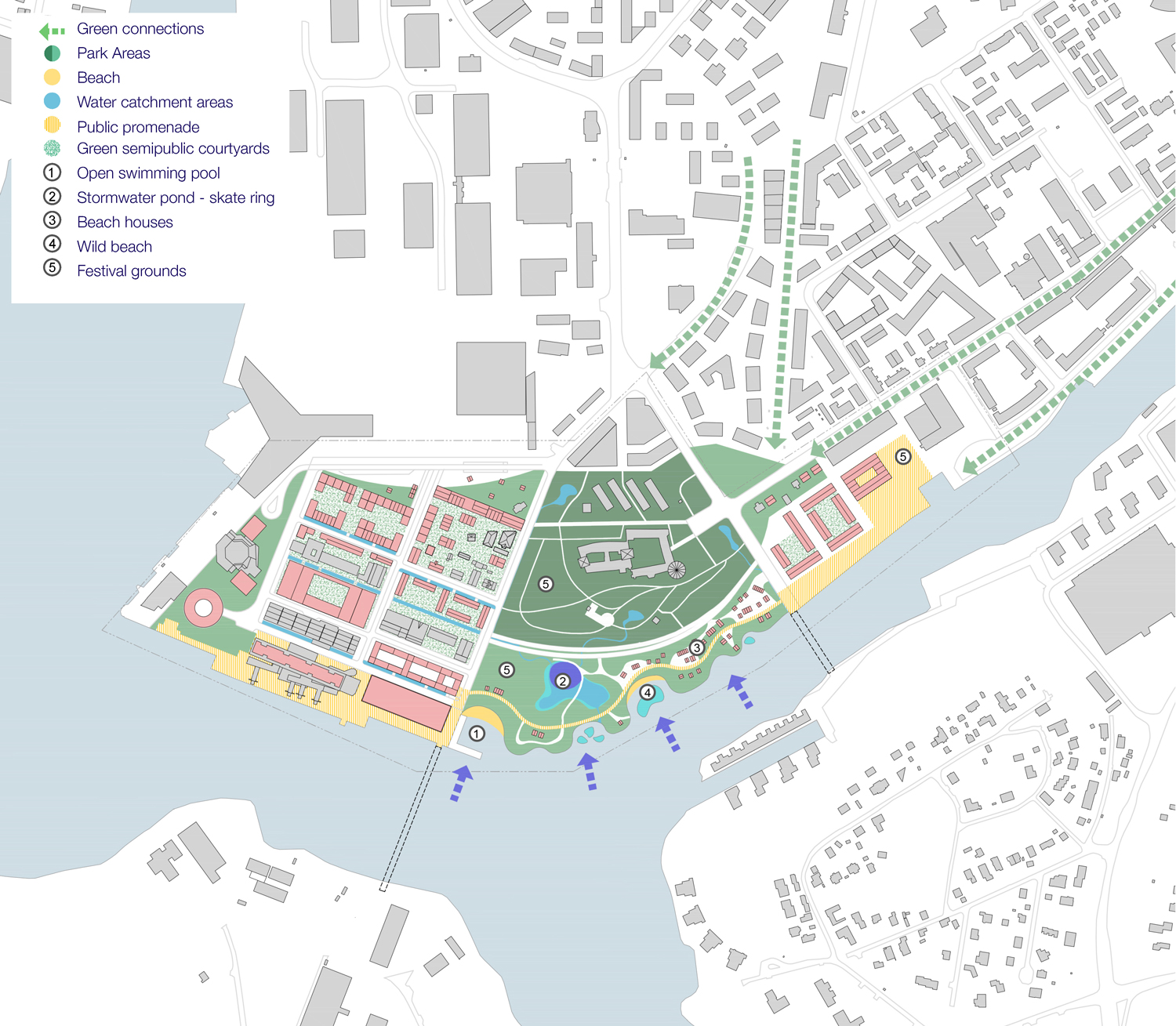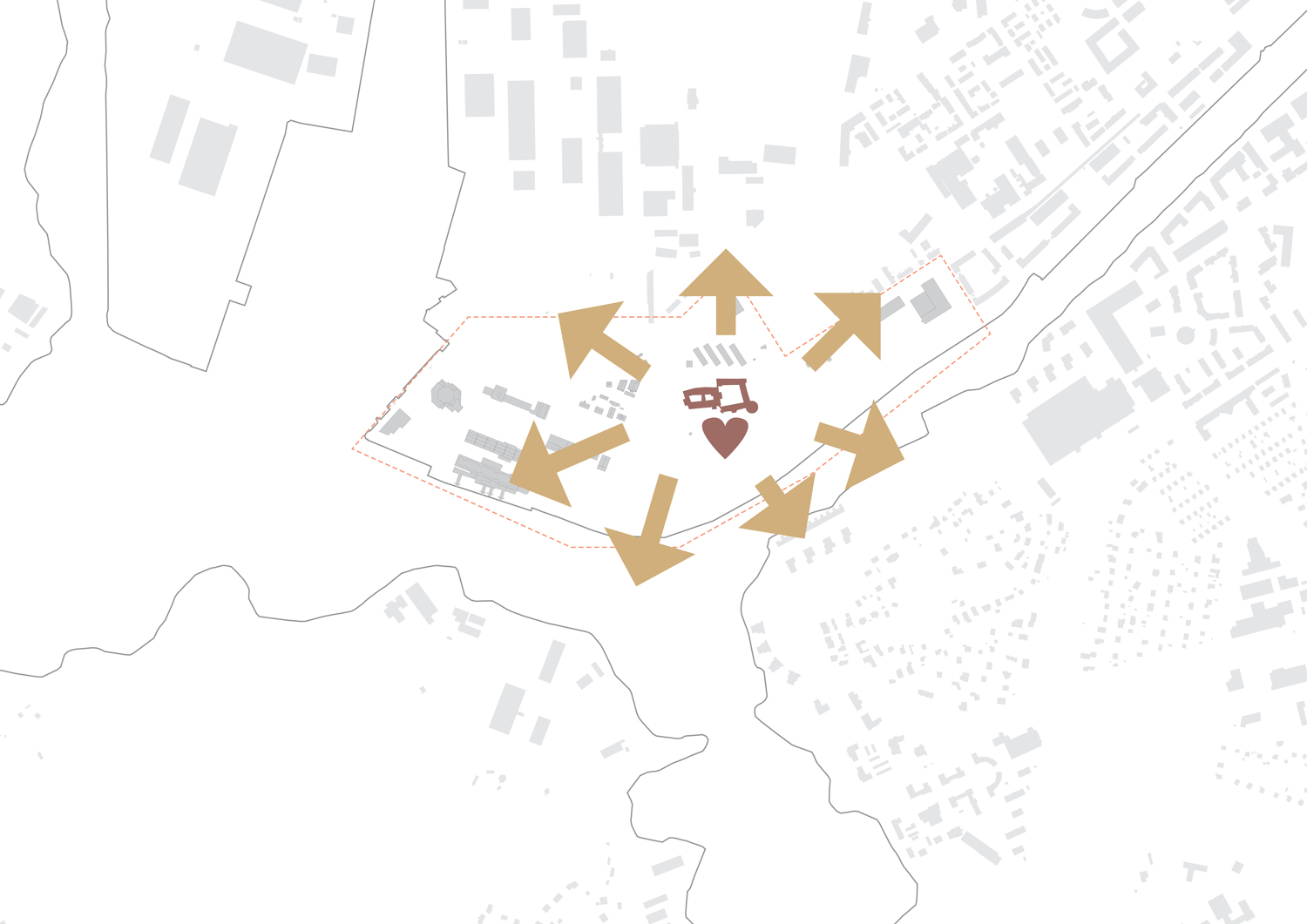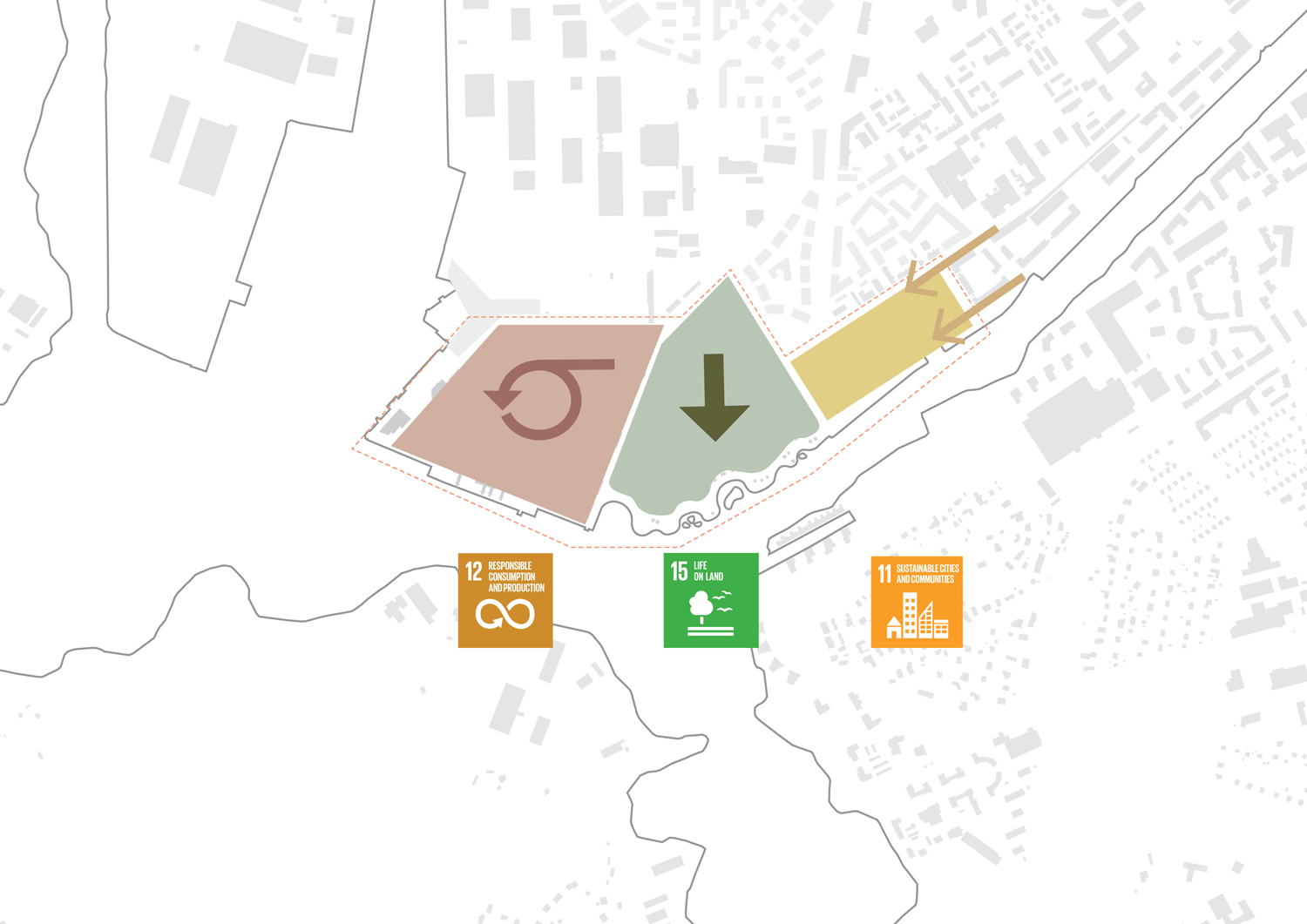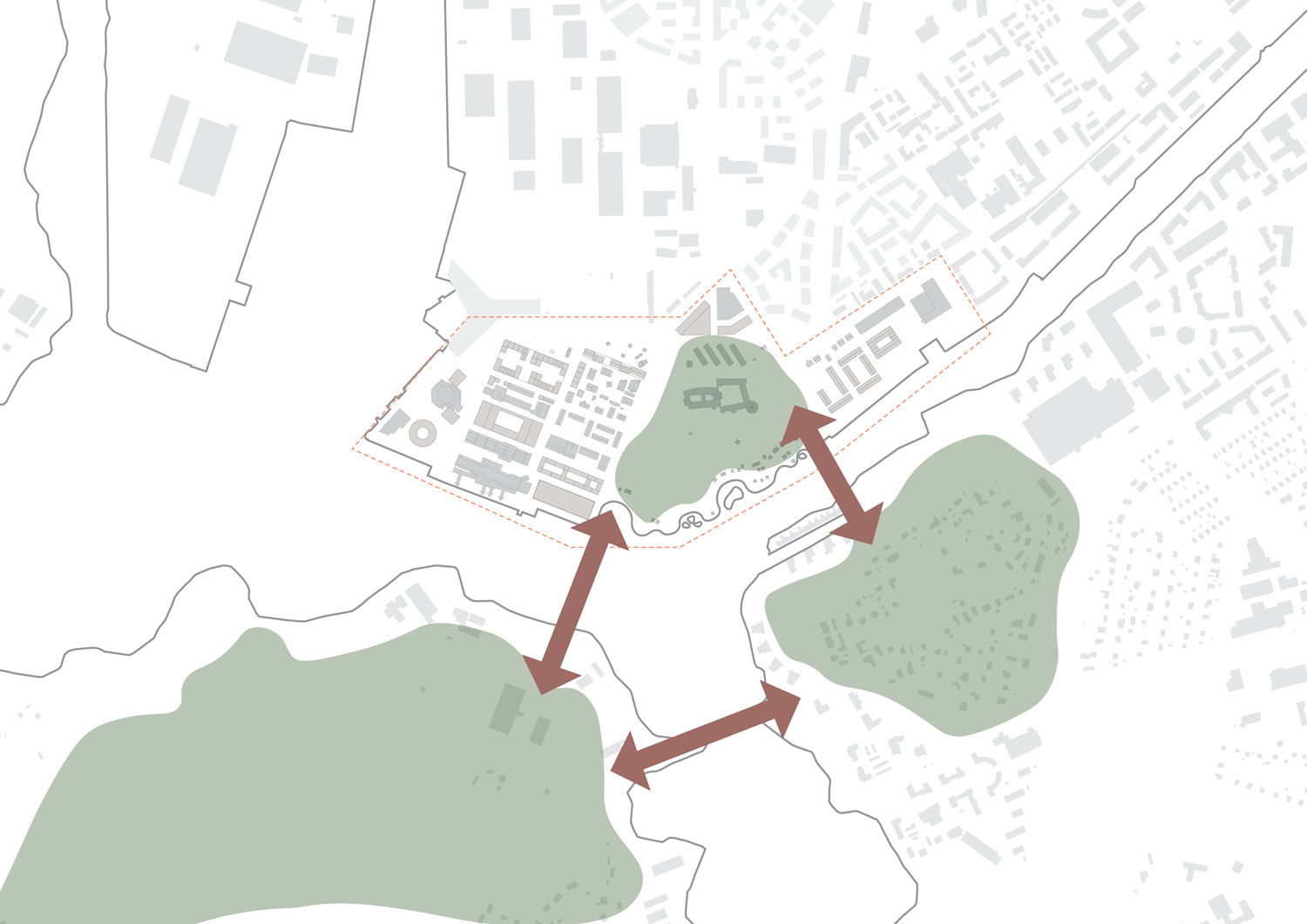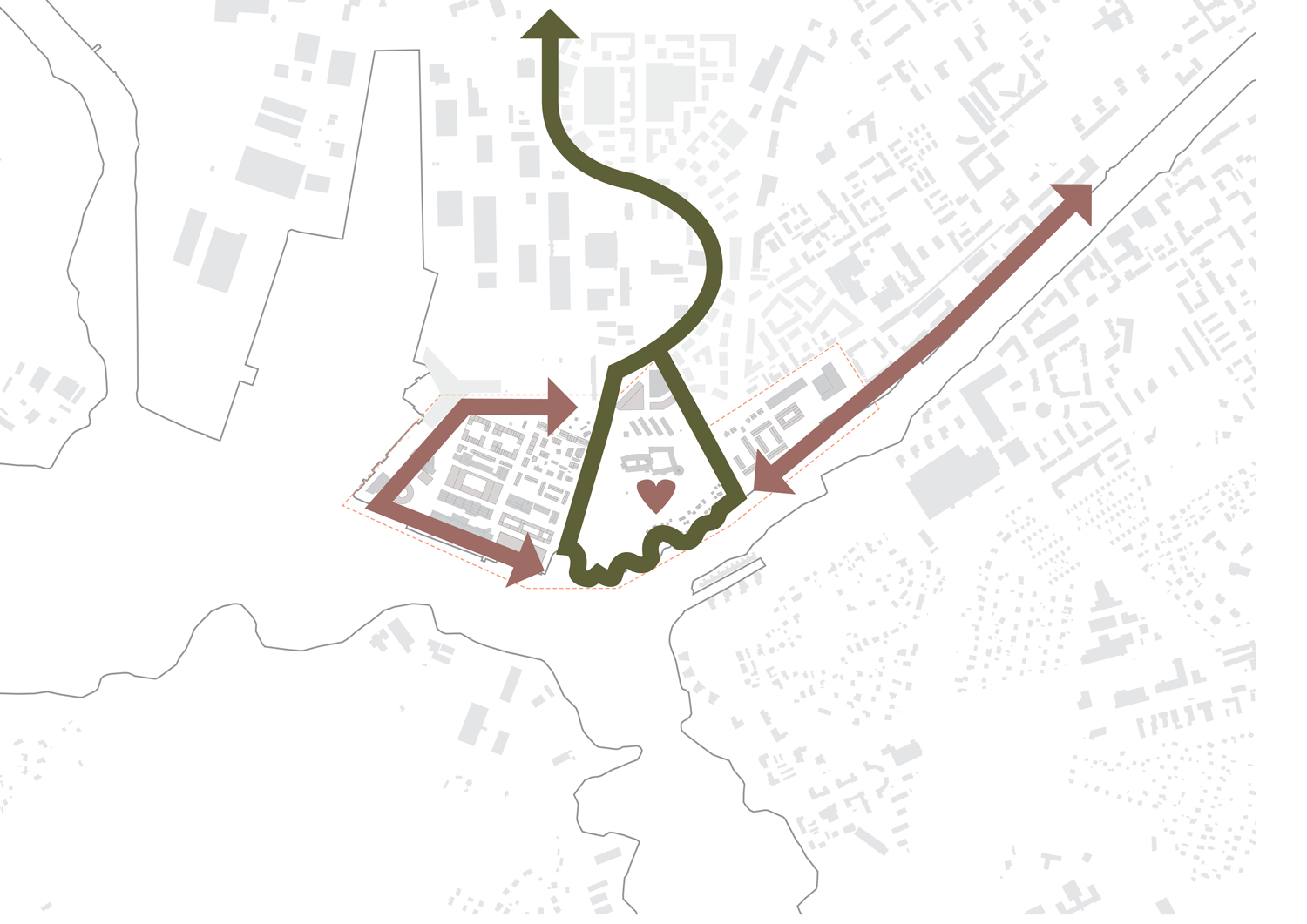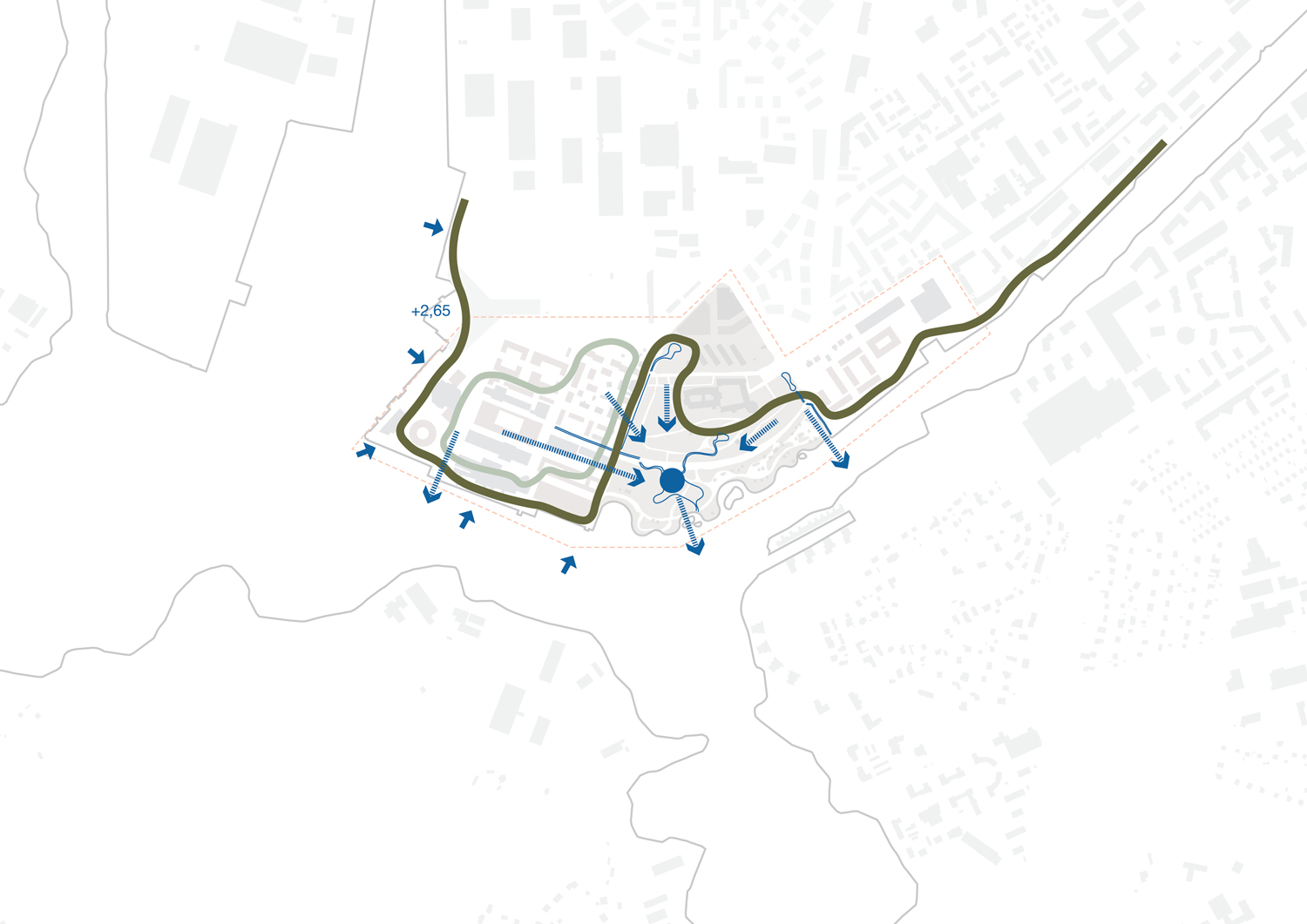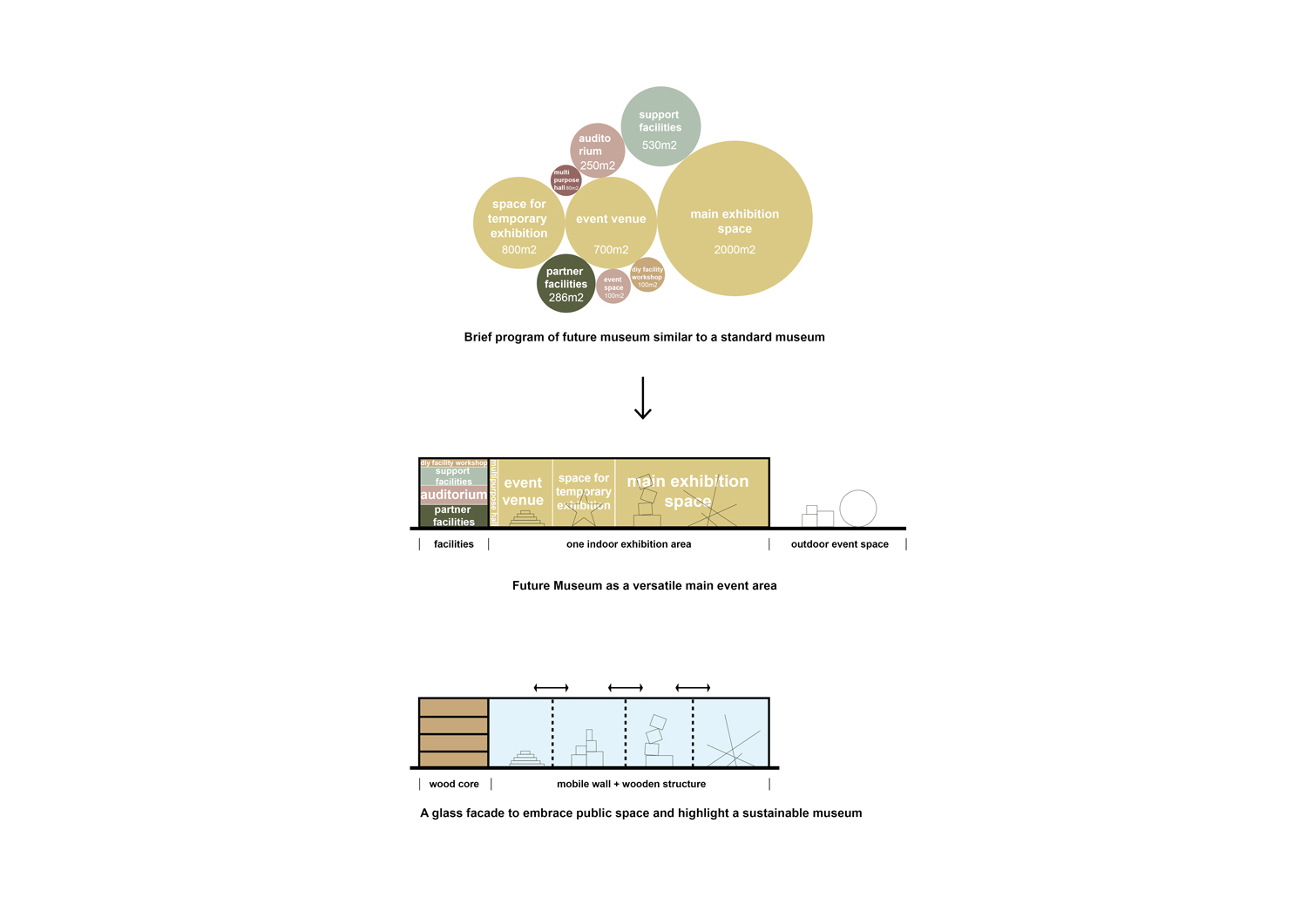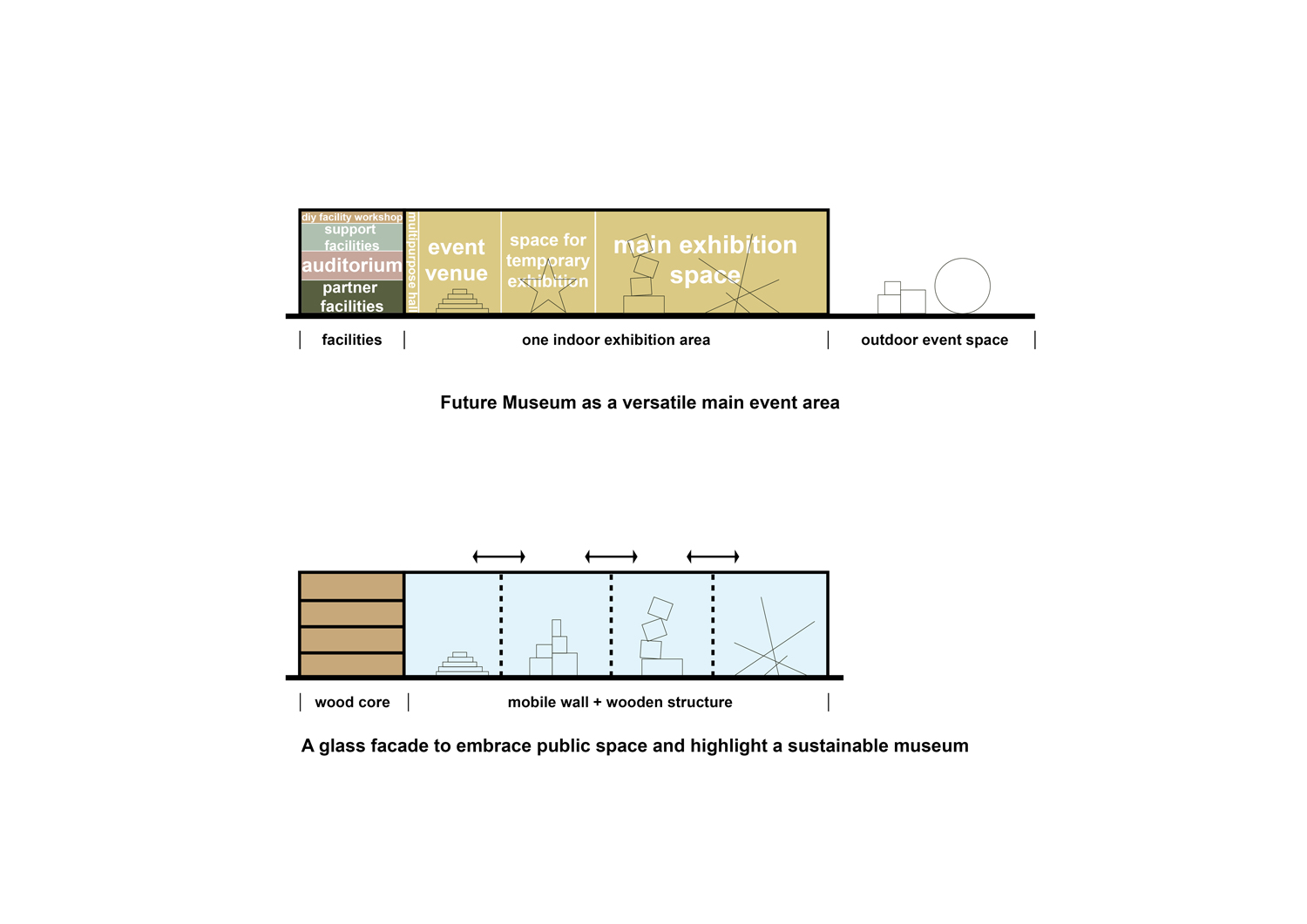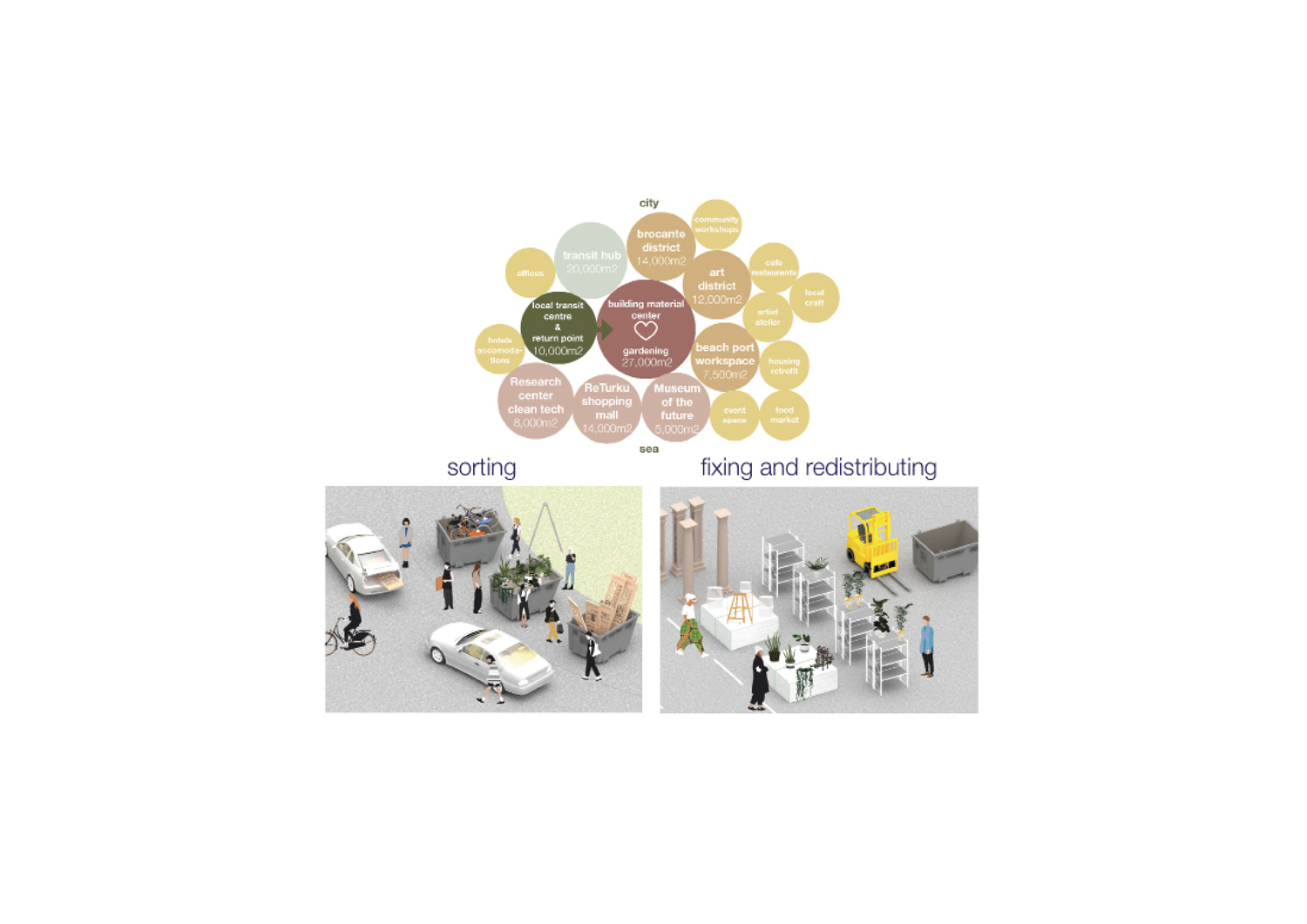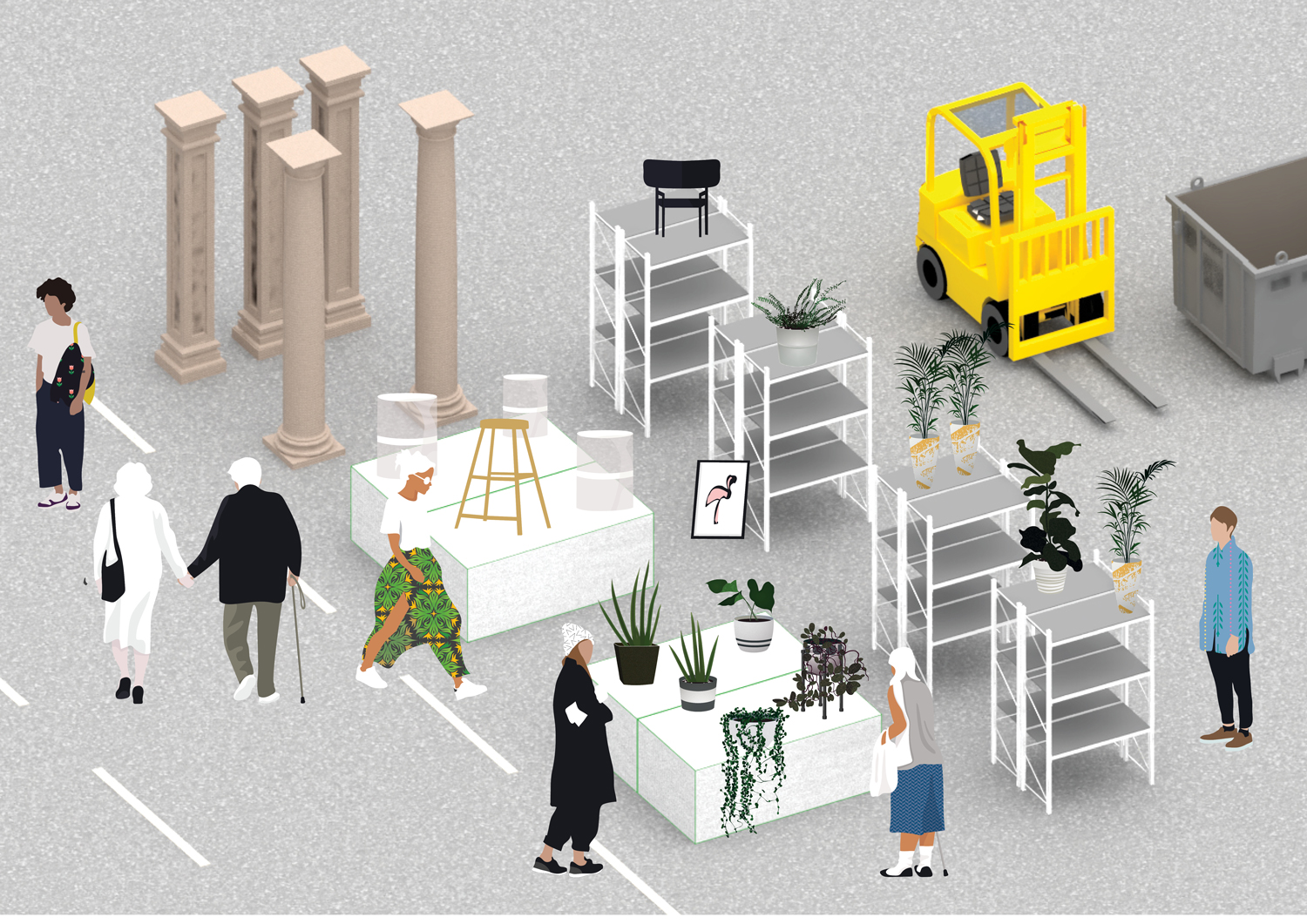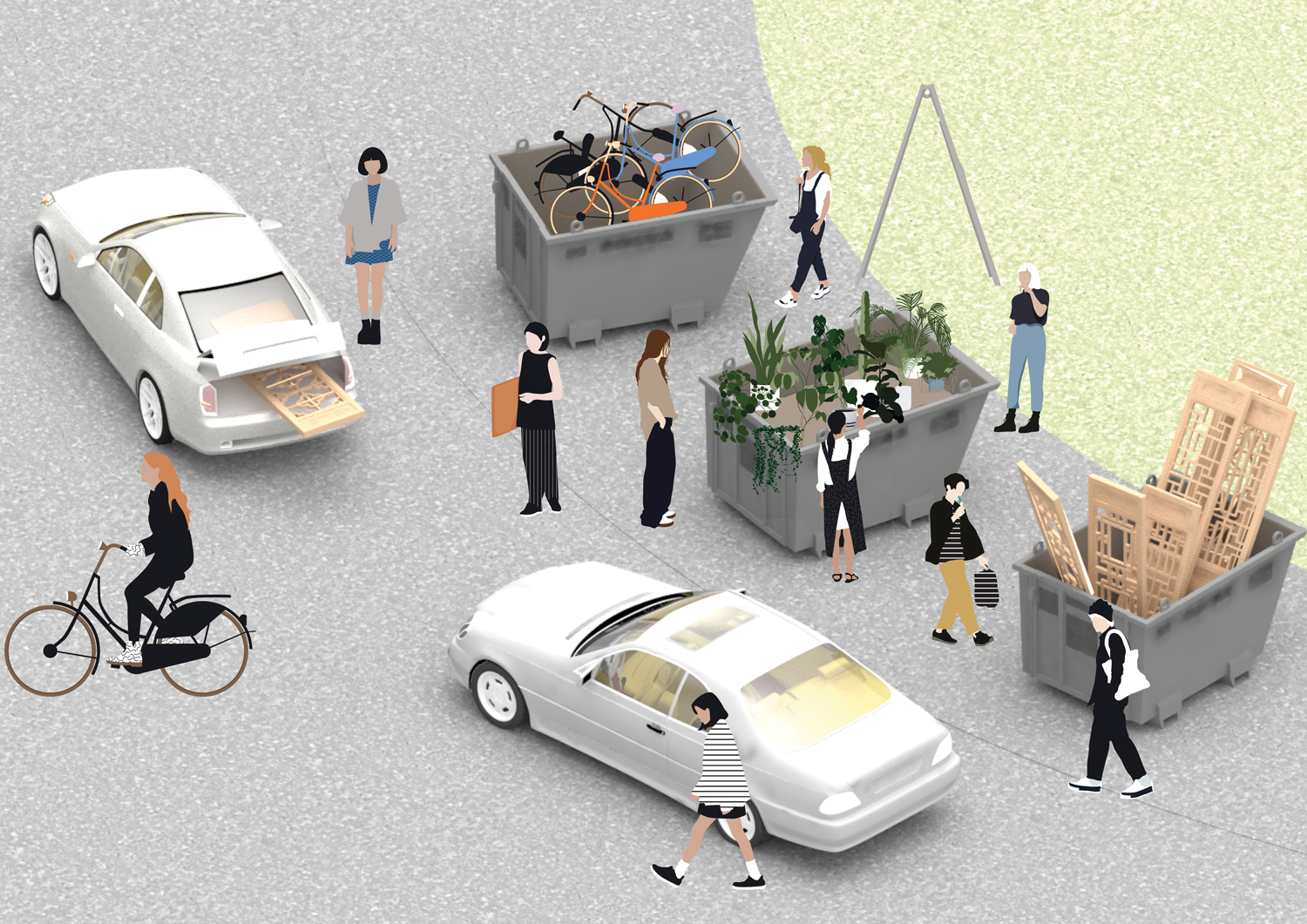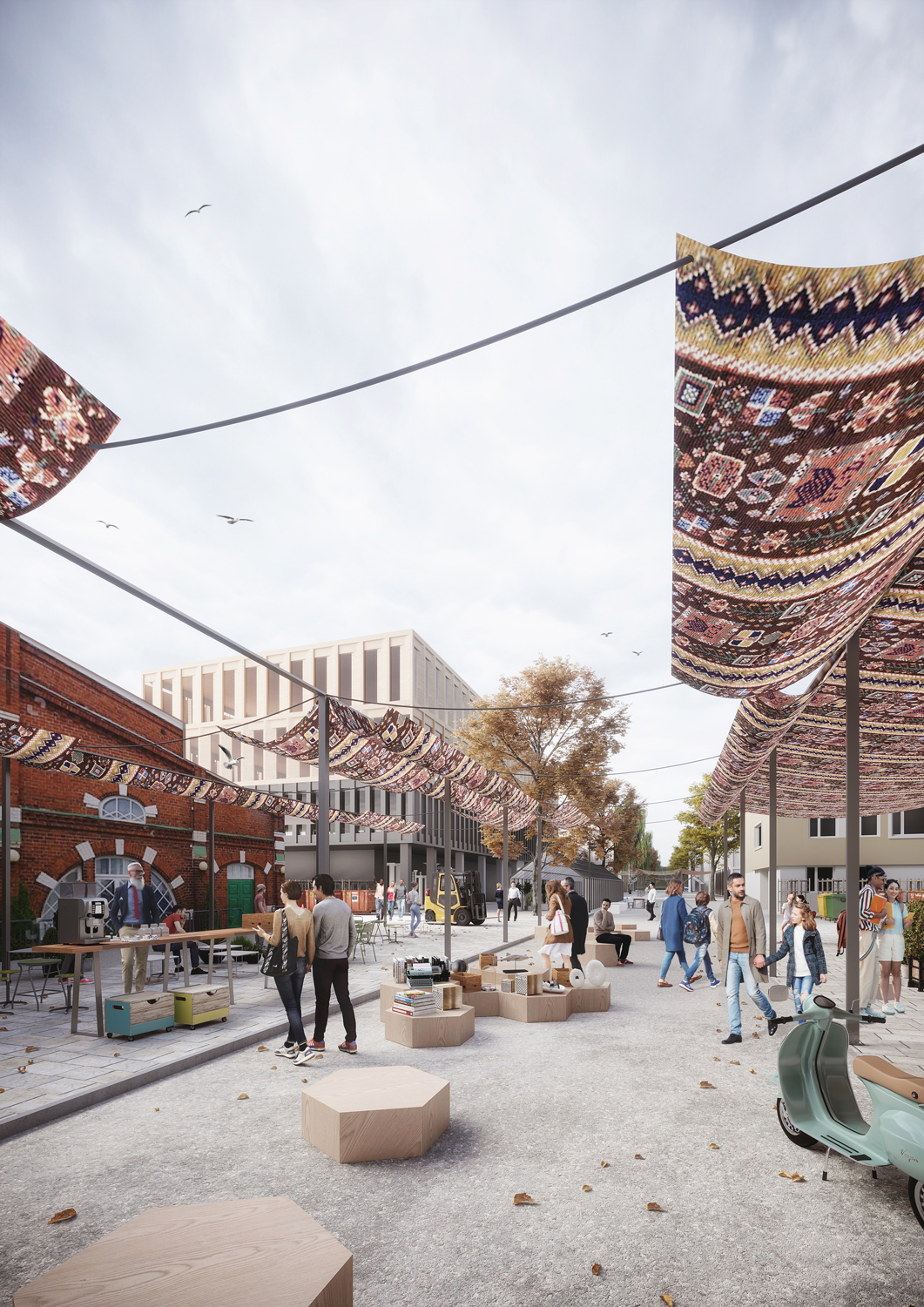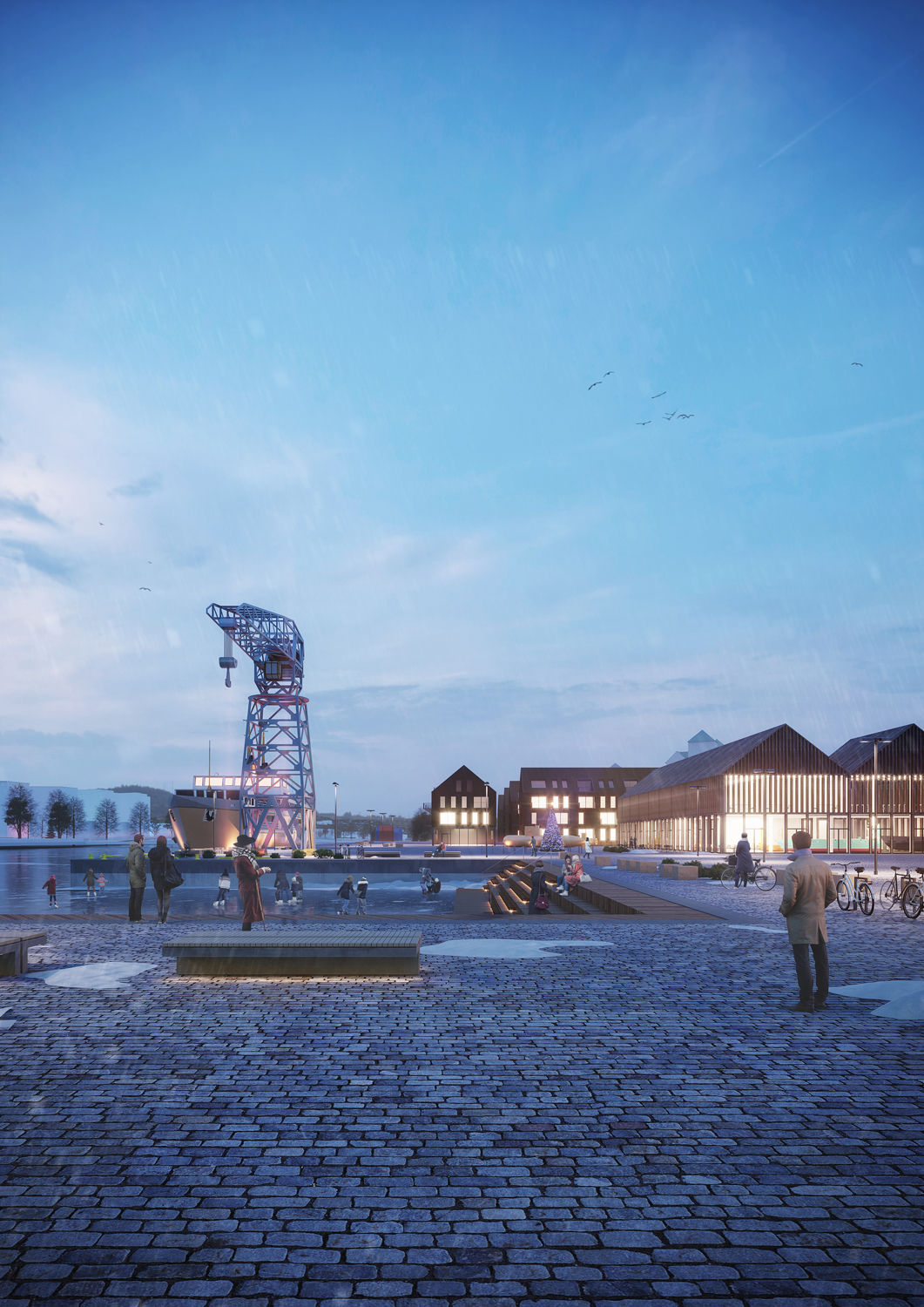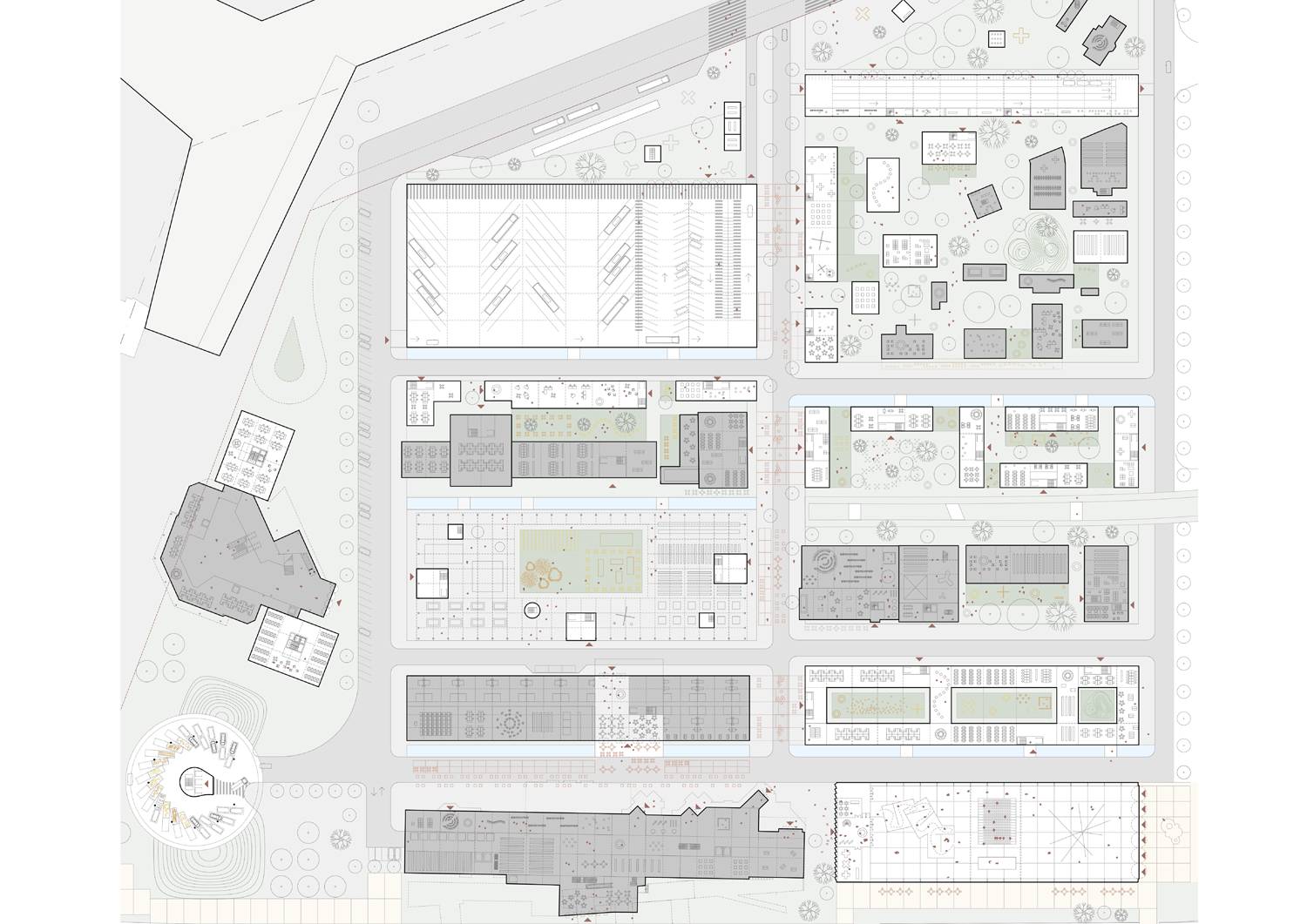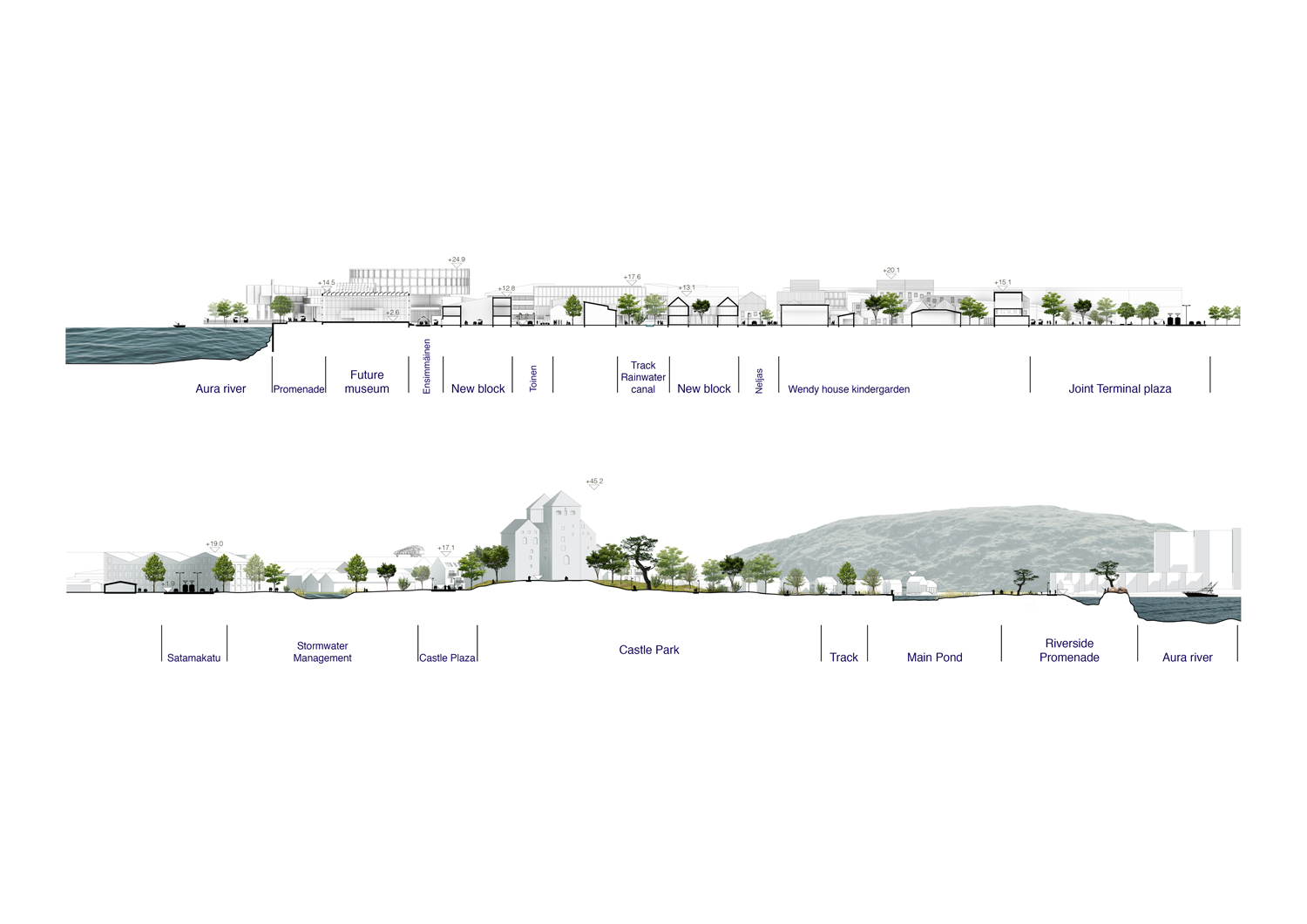☉ ReTurku 2050 is a selected competition entry by Local RUUME arhitekti Ansis Sinke and Sandra Sinka developed in 2020. It is located in Turku Finland in a riverside and urban setting. Its scale is extralarge with a surface of 350.000 sqm.
What if the transformation of Tuku´s industrial waterfront became a new act of rewilding that can also transform how the city will use and reuse its local resources? We envision a new district reconnecting the city, with pristine beaches along a new archipelago shoreline, to its history, its inhabitants and the sea. Our future vision focuses on integrating the urbanism of reuse & recycling to create an exciting all year round destination for all, rather than pushing away the mechanism and spaces of this sector in mutation today. We propose to transform the large area of the Port into Finland’s largest re-use HUB, with Local Transit Center, reclaimed building material center, and Reused Shopping Mall together with the new museum, and a robust extension of the green corridor connected to the waterfront, the castle and a more active Maritime District.
For us, a museum of History and the Future, the life of the Maritime Center and the Castle should be tomorrow connected together with a hybrid identity that can become a useful destination for a large variety of actors. Turku Castle is the central and the most important element of the whole area of Linnanniemi. The accessibility and visibility of the landmark is strengthened from the all main directions by project`s proposal. The existing castle park is extended towards the waterfront and across the Linnankatu street, that becomes a traffic-free zone in the castle’s proximity. We want to develop a district where private contractors, small businesses, public institutions, inhabitants, international tourists, and the Nordic countries would come to Turku and its port waterfront to contribute or experience the shift of tomorrow’s lifestyle. For us, the scale, location and ambition for this site is unique to successfully implement this type of alternative urban development.
The first step in the fight against climate change and environmental degradation is to limit the use of natural resources. This can be done as efficiently as possible by reusing the resources we have already recovered. When we want to develop cities and the surrounding area, we must do so in a way that limits the use of resources, transportation and the generation of waste. The reuse of natural resources seems the most effective way forward. Recycled building materials are one of the most effective measures to reduce the building’s environmental footprint.
Reduced environmental footprints in the selection of materials can help reduce the need for technical infrastructure in buildings. The threat to implementing shorter circuits required to enable the circular economy to thrive is the lack of storage and dedicated spaces in the vicinity of centers that matches the scale of the challenge. Mechanism of circular economy should be visible, experienced, seen and empowering. To be implemented on a large scale, it must be an integral part of our daily life. ReTurku offers the opportunity to visit and inhabit the spaces of the circular economy.
From various emerging actors and businesses we can understand that there is a link missing in the existing landscape to ensure better circulation of reusable building materials. We see a type of operator anchored in an urban environment, which would provide a new interface that could coordinate disparate batches, create more regular and predictable volumes of goods, reduce travel costs and limit additional costs to often low added value material to increase support by professional resellers.
Most importantly, these new spaces and processes should become visible in the city as a destination for public, businesses, research or tourists. They could be outlet for disparate small lots, a physical platform coupled with an online storefront, material preparation area link with specialized peri-urban suppliers, large flows of stocked materials as close as possible to urban customers, expertise and support for questions related to reuse, support re-use inventories before demolition, support CleanTech research and develop regulation and documentation on the subject. Social or artistic initiatives can durably be formed around it and develop into a more complex and rich urban neighborhood.
